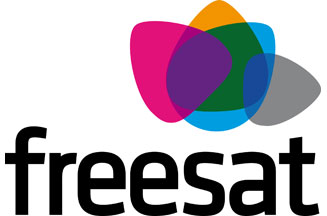
Project Canvas is the name given to the planned broadband TV service from the BBC, ITV and BT that emerged from the ashes of the equally obscurely named Project Kangaroo.
The proposals have already rattled Sky, which has described them as 'unclear', 'incomplete' and not sufficiently transparent to allow for a proper consultation.
The aim of Project Canvas is to move on-demand, extended and interactive services from the PC to the TV via Freeview and Freesat, direct rivals to Sky's digital TV services. The latter argues the initiative could distort the market if it is given the go-ahead by Ofcom.
In light of this, the satellite broadcaster has called on the BBC Trust to look into the proposed service to measure its potential value to the public against the impact on the wider market. Specifically, it wants the Trust to investigate how other suppliers' business might be affected.
For advertisers, the potential of Canvas, with its ability to converge TV viewing and internet access, could be vast. Nigel Walley, managing director of media consultancy Decipher, says that for advertisers to benefit fully from the new technology, the same ad formats need to be available across all set-top box platforms.
Sky and Virgin Media TV are already exploring commercial opportunities through their catch-up services and 'red-button' partnerships. The emerging formats include advertising shown alongside the electronic programme guide, formats integrated with on-demand content (such as ads shown at the start of programmes downloaded on 4oD or the ITV Player), interactive 'red-button' content and hosted long-form or 'green-button' advertising content.
Following Walley's reasoning, all of these formats would need to be encompassed by the Canvas software to enable commercial broadcasters to maximise their return from the system.
'This could introduce a new revenue stream to broadcasters, not only through new ad formats, but also through offering a production service for extended content,' says Rupert Britton, content strategy director at media agency PHD.
Britton points out that when extended content is developed now, it is designed for a web model rather than for TV. If Canvas is approved and becomes successful, it will completely change the way ads are developed, by presenting a linear journey that takes viewers from a spot ad into extended online content.
Internet-ready televisions are already arriving on the market. Sky, meanwhile, has said its own online set-top boxes are 'well advanced'. The question that remains is whether the BBC Trust will support the Project Canvas proposal, and whether Ofcom will agree with its view.
In response to Sky's criticisms, the Project Canvas partners have stressed that the scheme is not exclusive. 'The enormous consumer benefits that internet-powered TV can bring should not be restricted to paying customers,' they said in a joint statement. 'Access to the Canvas platform would be open to any third-party, including Sky.'
This is a strong argument. Few disagree with the proposition that TV broadcasting needs both fundamental restructuring and a new revenue model. Project Canvas could be a step toward both of these goals.

